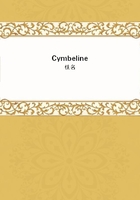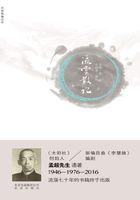So long as the Russian power was geographically limited to the possession of the central provinces in the immediate neighbourhood of Moscow, and so long as the shores of the Volga and Dnieper suffered from almost periodical invasions of the Tartars, the Russian peasant who might wish to leave a manor could not easily have procured the land he required; but when the conquests of Ivan III and Ivan the Terrible had reduced to naught the power of the Tartars, and had extended the Russian possessions both to the East and to the South, the peasants were seized with a spirit of migration, and legislation was required to put a stop to the economic insecurity created by their continual withdrawal from the manors of Inner Russia to the Southern and Eastern steppes. It is, therefore, easy to understand why laws to prevent the possibility of a return of peasant migration were first passed, at least on a general scale, at this period. It is no doubt true that, even at the end of the fifteenth century, to certain monasteries were granted, among other privileges, that of being free from the liability of having their peasants removed to the estates of other landlords. Acharter of the year 1478 recognises such a privilege as belonging to the monks of the monastery of Troitzko-Sergievsk, which is, according to popular belief, one of the most sacred places in Russia. The financial interests of the State also contributed greatly to the change. The fact that the taxpayer was tied to the soil rendered the collection of taxes both speedier and more exact. These two causes sufficiently explain why, by the end of the sixteenth century, the removal of peasants from manor to manor had become very rare.
The system of land endowments in favour of the higher clergy and monasteries, and also of persons belonging to the knightly class, had increased to such an extent that, according to modern calculation, two-thirds of the cultivated area was already the property either of ecclesiastics or of secular grandees. It is therefore easy to understand why, during the sixteenth century, the migratory state of the Russian agricultural population came to be considered as a real danger to the State by the higher classes of Russian society. The most powerful of the nobles and gentry did their best to retain the peasants on their lands. Some went even farther, and, by alleviating the burdens of villein-service, and securing a more efficient protection for them from administrative oppression, induced the peasants who inhabited the lands of smaller squires to leave their old homes and settle on their manors. It was in order to protect the small landowners from this sort of oppression that Boris Goudonov, the all-powerful ruler of Russia in the reign of Theodor Ivanovitch, promulgated a law, according to which every one was authorised to insist on the return of a peasant who left his abode, and that during the five years next following his departure. This law was promulgated in 1597. As no mention is made in it of the right previously enjoyed by the peasants of removing from one manor to another on St. George's Day, this law of 1597 has been considered by historians as the direct cause of the introduction of the so-called "bondage to the soil" (krepostnoie pravo). Such was certainly not its object. The right of migration on the Day of St. George was openly acknowledged by the laws of 1601 and 1602.
The bondage of the peasant to the soil became an established fact only in the year 1648, when the new code of law, the so-called Oulogienie (chap. xi), refused to any one the right to receive on his lands the peasant who should run away from a manor, and abolished that limit of time beyond which the landlord lost the right to reclaim the peasant who had removed from his ancient dwelling.
The number of serfs rapidly increased during the second half of the seventeenth and the eighteenth centuries, owing to the prodigality with which the Czars and Emperors endowed the members of the official class with lands, in disregard often of their previous occupation by free village communities, the members of which were forced to become the serfs of the persons who received the grant. It is in this way that Catherine II, for instance, during the thirty-four years of her reign, increased the number of serfs by 800,000 new ones, and that Paul I, in a period of four years, added 600,000 to the number, which was already enormous.
Before the reign of Catherine, serfdom was almost unknown in Little Russia, where it had been abolished by Bogdan Chmelnitzky, soon after the separation of Little Russia from Poland, and in the Ukraine (the modern Government of Kharkov), where it had never before existed. In 1788 she revoked the right hitherto enjoyed by the peasants of these two provinces to remove from one manor to another. The same right of free removal was abolished a few years later in the "Land of the Don Kossacks" and among the peasants of the Southern Governments, called New Russia (Novorossia).















